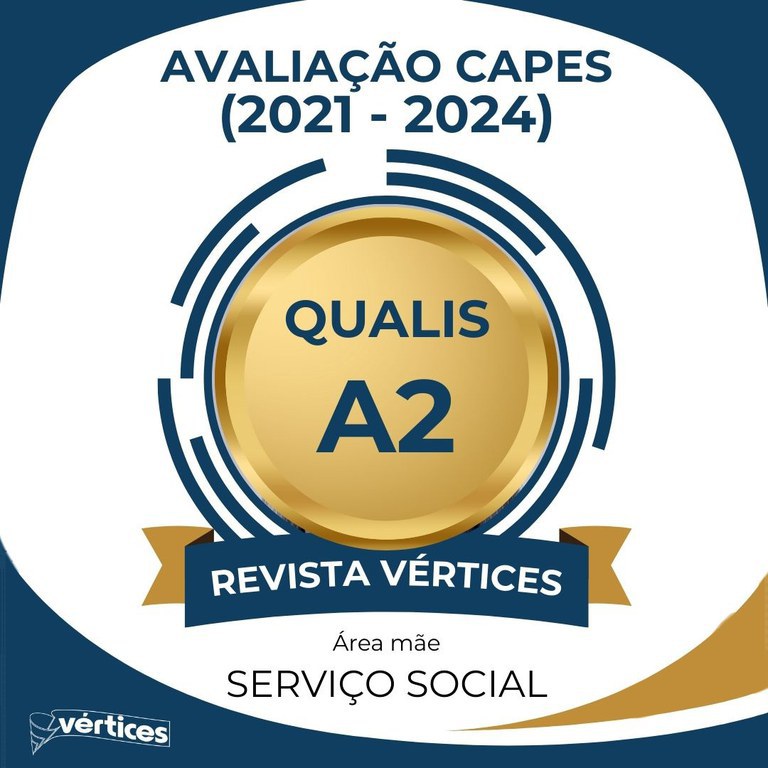Borders of the cyberspace
DOI:
https://doi.org/10.5935/1809-2667.20050010Keywords:
Cyberspace, Cyberculture, VirtualAbstract
The study aims at contributing to demystifying some currently discussed concepts by using analytical tools from Sociology and Anthropology. It also defines cyberspace and cyberculture within the new social relations from which they emerge and of which they are privileged producers as they occupy spaces in a man-made environment.Downloads
References
AUGÉ, Marc. Não-lugares: introdução a uma antropologia da supermodernidade. 4. ed. Campinas, SP: Papirus, 2004.
CASTELLS, Manuel. O poder da identidade. V. 2. 3. ed. In: A era da informação: economia, sociedade e cultura. Rio de Janeiro: Paz e Terra, 2002.
FOUCAULT, M. A ordem do discurso. 5. ed. São Paulo: Edições Loyola, 2001.
FOUCAULT, M. Microfísica do poder. 19. ed. Rio de Janeiro: Graal, 2000.
GEERTZ, Clifford. A Interpretação das Culturas. Rio de Janeiro: LTC, 1989.
GOMES, M. L. M.; SOUZA, C. H. M. Do lugar ao não lugar: a re-invenção do conhecimento. InterSciencePlace, Rio de Janeiro, v. I, n.1, 2004.
KIM, Joon Ho. Cibernética, ciborgues e ciberespaço: notas sobre as origens da cibernética e sua reinvenção cultural. Horizontes Antropológicos, Porto Alegre, ano 10, n. 21, p. 199-219, jan./jun. 2004.
LARAIA, Roque de Barros. Cultura: um conceito antropológico. 19. ed. Rio de Janeiro: Jorge Zahar, 2006.
LEMOS, André. Cibercultura: tecnologia e vida social na cultura contemporânea. Porto Alegre: Sulina, 2002.
MAFFESOLI, Michel. Sobre o nomadismo: vagabundagens pós-modernas. Rio de Janeiro: Record, 2001.
MELO, Luis Gonzaga de. Antropologia Cultural: iniciação, teoria e temas. 6. ed. Petrópolis, RJ: Vozes, 1995.
LÉVY, Pierre. O que é o virtual? São Paulo: Ed. 34, 1996.
MORAES, A. C. R. Geografia: pequena história crítica. 15. ed. São Paulo: Hucitec, 1997.
MOREIRA, R. O que é Geografia. 14. ed. São Paulo: Brasiliense, 1994.
O´BRIEN, James A. Sistemas de Informação e as decisões gerenciais na era da internet. 9. ed. São Paulo: Saraiva, 2003.
RIBEIRO, Gustavo Lins. Cultura e política no mundo contemporâneo: paisagens e passagens. Brasília, DF: UNB, 2000.
ROSA, Jorge Martins. Cibercultura “em construção”. Revista de Comunicação e Linguagens, n. 28, Tendências da cultura contemporânea, Lisboa: Relógio d’água, 2001, p. 319-332.
TURKLE, Sherry. Fronteiras do real e do virtual. Entrevista concedida a Federico Casalegno, Pesquisador do Centro de Estudos do Atual e do Quotidiano (CEAQ/Sorbonne - Paris V) e associado ao Núcleo de Tecnologias do Imaginário (NTI-FAMECOS/PUCRS), Revista FAMECOS, Porto Alegre, n. 11, p. 117-123. dez. 1999. Disponível em: http://www.pucrs.br/famecos/pos/revfamecos/11/sherry.pdf. Acesso em: 20 set. 2005.
Downloads
Issue
Section
License
The authors of the manuscript submitted to Vértices, hereby represented by the corresponding author, agree to the following terms:
The authors retain the copyright and grant Vértices the right of first publication.
At the same time the work is licensed under the Creative Commons Attribution 4.0 International License, allowing third parties to copy and redistribute the material in any medium or format and to remix, transform, and build upon its content for any legal purpose, even commercially, provided the original work is properly cited.
Authors will not receive any material reward for the manuscript and Essentia Editora will make it available online in Open Access mode, through its own system or other databases.
Authors are authorized to enter into additional contracts separately for non-exclusive distribution of the version of the work published in Vértices (eg, publish in institutional repository or as book chapter), with acknowledgment of authorship and initial publication in this journal.
Authors are permitted and encouraged to disseminate and distribute the post-print (ie final draft post-refereeing) or publisher's version/PDF at online information sources (eg, in institutional repositories or on their personal page) at any time after the first publication of the article by Vértices.
Essentia Editora may make normative, orthographic and grammatical changes in the originals in order to maintain the standard language, with the final consent of the authors.
The content and opinions expressed in the manuscript are the sole responsibility of the author (s).
























1.png)



